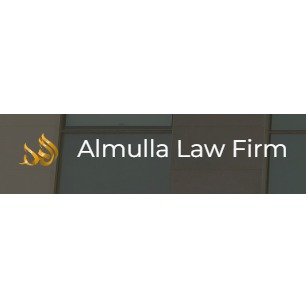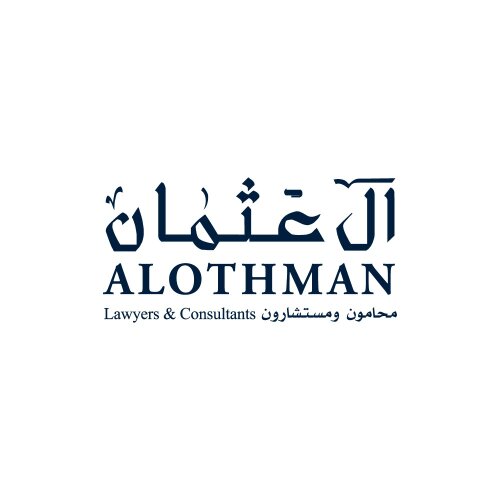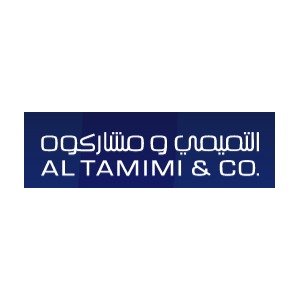Best Structured Finance Lawyers in Riyadh
Share your needs with us, get contacted by law firms.
Free. Takes 2 min.
List of the best lawyers in Riyadh, Saudi Arabia
About Structured Finance Law in Riyadh, Saudi Arabia
Structured finance refers to complex financial instruments that are typically used by large corporations, financial institutions or entities seeking alternative forms of financing. In Riyadh, Saudi Arabia, structured finance is increasingly important as the country develops its capital markets and creates new investment opportunities in line with Vision 2030. The practice involves asset-backed securities, securitizations, syndicated loans, project finance, sukuk (Islamic bonds), and various other tailored products. Local laws and religious principles, such as Sharia law, play a significant role in shaping the structure and operation of these transactions.
Why You May Need a Lawyer
Structured finance transactions are legally and technically complex. Here are some common scenarios where you may need legal assistance:
- Structuring or participating in securitization deals and sukuk issuances.
- Seeking project finance solutions for large infrastructure or industrial projects.
- Negotiating loan syndications with multiple financial institutions.
- Ensuring compliance with Sharia law as well as Saudi legal and regulatory requirements.
- Advising on risk management, regulatory disclosures, and documentation.
- Addressing cross-border finance complexities and foreign investment regulations.
- Resolving disputes or managing defaults within structured finance arrangements.
A specialized lawyer helps interpret local laws, mitigate financial and legal risks, and ensure your structured finance transactions proceed smoothly and efficiently.
Local Laws Overview
Structured finance activities in Riyadh are primarily governed by a combination of Saudi Arabian laws, regulations from financial market authorities, and Islamic Sharia principles. Key legal aspects include:
- The Capital Market Law: Overseen by the Capital Market Authority (CMA), this law regulates public offerings, securities issuance, and investor protections.
- Islamic Finance Requirements: Many structured finance instruments in Saudi Arabia must be Sharia-compliant, which prohibits interest (riba) and excessive uncertainty (gharar), shaping the design of products like sukuk.
- Banking Laws: The Saudi Central Bank (SAMA) regulates banks and financial institutions involved in lending and syndication activities.
- Insolvency and Bankruptcy Law: The 2018 bankruptcy law introduces rules for restructuring and insolvency proceedings, which are critical for risk assessment in structured finance.
- Anti-Money Laundering (AML) and Counter Terrorism Financing Laws: Strict compliance is required from all market participants to prevent misuse of financial structures.
- Foreign Investment Regulations: The Ministry of Investment of Saudi Arabia (MISA) regulates foreign participation in structured finance deals.
Each transaction may require tailored structuring to align with both local regulations and the expectations of international investors when applicable.
Frequently Asked Questions
What is structured finance?
Structured finance involves complex financial transactions designed for larger financial needs that cannot be met through standard lending. It includes instruments like securitization, sukuk, syndicated loans, and project finance.
Is it necessary for structured finance products to comply with Sharia law in Riyadh?
Yes, most structured finance transactions in Riyadh must comply with Sharia principles, especially sukuk and other Islamic finance products, in addition to local legislation.
Who regulates structured finance activities in Saudi Arabia?
The Capital Market Authority (CMA) regulates the securities market, while the Saudi Central Bank (SAMA) oversees banks and financial institutions. The Ministry of Investment (MISA) also plays a role in foreign investment matters.
What is sukuk and how does it differ from a traditional bond?
Sukuk is an Islamic financial certificate, similar to a bond, which complies with Sharia law by not paying interest. Instead, holders receive profits from underlying assets or ventures.
How can legal risks be managed in structured finance transactions?
Legal risks can be managed with thorough documentation, legal due diligence, professional legal advice, and compliance with all relevant Saudi laws and regulations.
What are the key laws to understand before entering a structured finance deal in Riyadh?
It is vital to understand the Capital Market Law, Sharia law requirements, Banking Law, Bankruptcy Law, and applicable AML regulations.
Can foreign investors participate in structured finance deals in Riyadh?
Yes, foreign investors can participate but must adhere to specific regulations set out by MISA, CMA, and other relevant authorities.
How are defaults managed in structured finance in Saudi Arabia?
The 2018 Bankruptcy Law provides processes for restructuring, settlement, or liquidation in the event of a default.
What documentation is typically required for a structured finance transaction?
Documentation may include transaction agreements, offering circulars, compliance certificates, security documents, and any approvals or licenses required by regulatory bodies.
What role does the Capital Market Authority (CMA) play in structured finance?
The CMA supervises the offering and trading of securities and ensures products like sukuk are transparently issued, appropriately disclosed, and that investor rights are protected.
Additional Resources
If you need more information or wish to contact relevant authorities, consider the following resources:
- Capital Market Authority (CMA): Regulates and supervises securities and structured finance activities.
- Saudi Central Bank (SAMA): Supervises banks, financing companies, and the financial sector.
- Ministry of Investment of Saudi Arabia (MISA): Guides on foreign investment and regulatory approvals.
- Vision 2030 Official Portal: For updates on economic reforms, legal developments, and investment frameworks.
- The Saudi Arabian Monetary Agency: For applicable circulars and guidance on financial stability.
- Law firms specializing in banking, finance, and Islamic finance practice areas.
Next Steps
If you are considering a structured finance transaction in Riyadh or need legal advice, here is how to proceed:
- Clearly identify your financial goals, the nature of the transaction, and potential partners.
- Gather all relevant documentation regarding your assets, investments, or project plans.
- Consult with a lawyer or law firm experienced in structured finance and Islamic finance in Saudi Arabia.
- Discuss your requirements, regulatory obligations, and compliance needs with your legal advisor.
- Request a detailed plan covering structure options, documentation needs, risk management, and regulatory submission timelines.
- Engage with relevant authorities as required for approvals or permissions.
- Maintain ongoing communication with your legal advisor throughout the process to ensure all obligations are met and risks are addressed.
Seeking professional advice early ensures your structured finance transaction is legally robust, compliant, and aligned with your business objectives in Riyadh, Saudi Arabia.
Lawzana helps you find the best lawyers and law firms in Riyadh through a curated and pre-screened list of qualified legal professionals. Our platform offers rankings and detailed profiles of attorneys and law firms, allowing you to compare based on practice areas, including Structured Finance, experience, and client feedback.
Each profile includes a description of the firm's areas of practice, client reviews, team members and partners, year of establishment, spoken languages, office locations, contact information, social media presence, and any published articles or resources. Most firms on our platform speak English and are experienced in both local and international legal matters.
Get a quote from top-rated law firms in Riyadh, Saudi Arabia — quickly, securely, and without unnecessary hassle.
Disclaimer:
The information provided on this page is for general informational purposes only and does not constitute legal advice. While we strive to ensure the accuracy and relevance of the content, legal information may change over time, and interpretations of the law can vary. You should always consult with a qualified legal professional for advice specific to your situation.
We disclaim all liability for actions taken or not taken based on the content of this page. If you believe any information is incorrect or outdated, please contact us, and we will review and update it where appropriate.

















